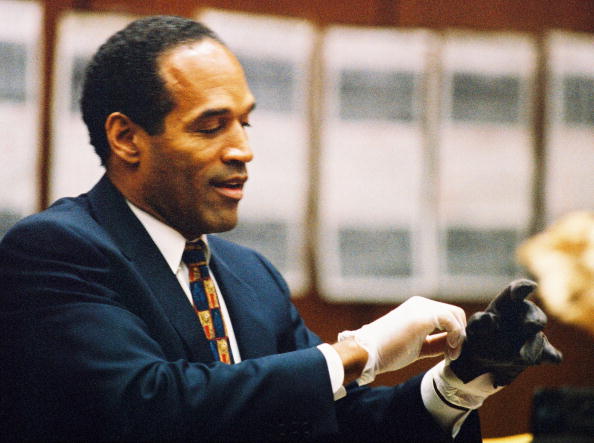WASHINGTON (AP) — A senior executive at a technology company that makes monitoring software secretly installed on 141 million cellphones said Thursday that the FBI approached the company about using its technology but was rebuffed. The disclosure came one day after FBI Director Robert Mueller assured Congress that agents “neither sought nor obtained any information” from the company, Carrier IQ.
SEE ALSO: Can You Guess Merriam-Webster’s Word Of The Year?
The company’s statement will likely inflame suspicion about the monitoring tool and its usefulness to the U.S. government.
Andrew Coward, vice president of marketing for Carrier IQ of Mountain View, Calif., told The Associated Press that the FBI is the only law enforcement agency that has contacted the company. Coward would not say when, why or how often the FBI has reached out to Carrier IQ, but he said the company is not working with the bureau. “There is no relationship between us and the FBI,” Coward said.
During an oversight hearing Wednesday, Mueller told the Senate Judiciary Committee that the FBI “neither sought nor obtained any information from Carrier IQ in any one of our investigations.” Mueller was responding to a question by Sen. Al Franken, D-Minn., chairman of the committee’s privacy and technology panel, who has said collecting personal information from people’s cellphones could violate federal law.
FBI spokesman Michael Kortan said in an emailed statement that the bureau’s technical staff “communicates routinely with many technology companies, including Carrier IQ, relative to new and emerging technologies and capabilities.”
The company’s technology is designed as a diagnostic tool that gives mobile telephone companies the ability to gather and analyze information that helps them improve the performance of devices that operate on their networks, Carrier IQ said. The software is typically installed by the phone company or the manufacturer of the handset.
Most cellphone users were unaware the company or its software existed until last month when a security researcher, Trevor Eckhart, posted online a video he made showing how keystrokes and messages from his smartphone were logged by the Carrier IQ software.
Eckhart said the software is hard to detect and difficult to turn off. Other researchers who subsequently studied Carrier IQ’s software said it does not appear to transmit the contents of emails or text messages but captures detailed information about recipients or destinations of messages, the physical location from where messages were sent or received and details such as the phone’s battery level.
Even before Thursday’s disclosure by Carrier IQ about the FBI contacting the company, the FBI had fueled questions about whether it sought to use the monitoring software in federal investigations or even whether it was investigating Carrier IQ. The FBI denied a request the AP made on Dec. 2 for internal documents about its interactions with Carrier IQ, citing a provision in the Freedom of Information Act that excludes from disclosure any documents relevant to a “pending or prospective law enforcement proceeding.” The FBI also told the AP that releasing the records that it sought could “reasonably be expected to interfere with the enforcement proceedings.”
The AP had asked for copies of correspondence from FBI officials requesting access to information stored on Carrier IQ’s servers or asking questions about such information. The AP also requested copies of records indicating visits by FBI officials to Carrier IQ’s offices and the results of any testing performed by the FBI on Carrier IQ’s technology.
Eckhart’s online video sparked concerns among privacy advocates about which information Carrier IQ’s software is recording and who can view it. In late November, Franken wrote to Carrier IQ’s president and asked him to answer a series of questions by Dec. 14 about the kind of data that the software can collect, how long the data is stored and whether any of this information is shared with third parties.
“These actions may violate federal privacy laws, including the Electronic Communications Privacy Act and the Computer Fraud and Abuse Act,” Franken wrote. “This is potentially a very serious matter.”
A few days later, Rep. Edward Markey of Massachusetts, co-chairman of the Congressional Bipartisan Privacy Caucus, asked the Federal Trade Commission whether it was investigating “the installation of software that secretly tracks and reports back the activities of cellphone users.”
Earlier this week, Carrier IQ sought to contain the damage by organizing meetings with officials at the FTC, the Federal Communications Commission and several Senate offices, including Franken’s, to explain what the software is intended to do. The company said it is not aware of an official investigation into its products or practices.
“Our data is not designed for law enforcement agencies and to our knowledge has never been used by law enforcement agencies,” the company said in a statement. “Carrier IQ have no rights to the data gathered and have not passed data to third parties. Should a law enforcement agency request data from us, we would refer them to the network operators. To date and to our knowledge we have received no such requests.”
The company posted a 19-page statement on its website that explains what its software does. It said the only data collected is to help solve common problems, such as batteries that drain too quickly or calls that fail to connect.
The software, called IQ Agent, typically transmits 200 kilobytes of diagnostic data – the equivalent of 50 typed pages – once each day when the phone is not being used, the company said, but decisions about what information to collect and how it is analyzed is determined by the phone companies and the agreements they have with their customers.
SEE ALSO:
Fast Food Bandit Captured After Robbing 28 Washington Restaurants
















